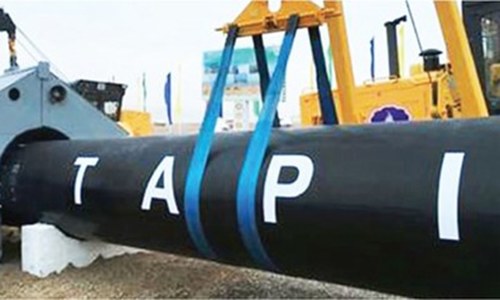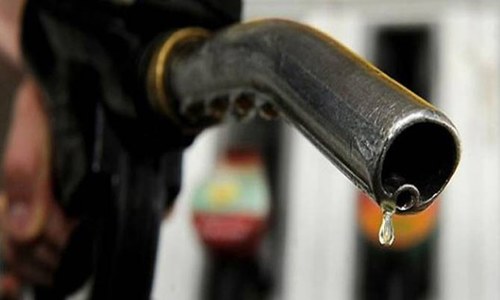ISLAMABAD: Pakistan’s oil import bill and local production of petroleum products declined by almost 20 per cent and 12pc, respectively, during first half of the current fiscal year, a clear sign of economic slowdown.
According to data released by the Federal Bureau of Statistics (PBS), the oil import bill during the first six months (July-December 2019) fell by 19.87pc in dollar terms as compared to the same period last year despite higher oil prices in the international market.
Total oil imports amounted to $6.14 billion during first half of the current year, compared to $7.66bn during the same period last year. The fall in rupee value of oil imports was relatively lower at 2.75pc because of massive currency devaluation and amounted to Rs962bn this year, compared to Rs988bn last year.
According to the PBS data, import of petroleum products was down by a quarter to $3.4bn during the first half of the current fiscal, compared to $2.59bn during the same period last year. In rupee terms, import of crude oil dropped by 8.07pc to Rs406bn.
Economic slowdown blamed for reduction in quantities of crude oil and petroleum products imported
Likewise, the import bill of crude oil was down by 27pc during the first six months of the current fiscal to $1.77bn against $2.43bn of the same period last year. The rupee value of crude import was also lower by 11.4pc to Rs277bn.
The import bill of liquefied natural gas (LNG) also dropped by 4.83pc to $1.6bn during the first half of the current fiscal, compared to $1.7bn during the same period last year. This would have translated into relatively lower power production through LNG — a replacement fuel against furnace oil.
The rupee value of LNG import was, however, higher by about 16pc at Rs254bn, compared to Rs220bn, showing a loss of exchange rate.
The import quantity of petroleum products also fell by 12.63pc to 4.66 million tonnes. The crude import quantity was 14.5pc lower to 3.95m tonnes during the first half of the current fiscal against 4.6m tonnes during the same period last year.
The reduction in import quantities of crude oil and petroleum products is a clear indication of reduced transportation and other economic activities in the country. This also suggests lower capacity utilisation of local oil refineries, compared to the last year, resultantly affecting their profitability.
The import of liquefied petroleum gas (LPG), on the other hand, went up by almost 34pc to $114m, but this could not dent a massive decline in the import bill of petroleum group because of its limited volume. The import of other products in the petroleum group fell by 69pc.
The fall in crude oil imports also translated into 12.2pc lower production of petroleum products by local refineries in the first five months of the current fiscal year.
The PBS data for large scale manufacturing is usually released with a time lag of almost two months. The five-month industrial data showed that output of 10 of the 11 petroleum products was lower than the same period last year.
The production of two major oil products — petrol and high speed diesel mostly used in the transport sector and agriculture — was down by more than 13pc each during the first five months of the current fiscal year.
The production of furnace oil was down by almost 16pc during the first five months of the current fiscal year, compared to the same period last year, but this could be attributed to the declining share of furnace oil in power generation. Jet (airline) fuel output was down by 4.27pc and that of kerosene by 5.85pc.
The production of lubricating oil and jute batching oil was down 18.26pc each and that of LPG and other petroleum products by 11.4pc and 27.3pc, respectively.
The only product that showed improvement in its production was solvent naphtha. Its output was up by 12.65pc.
As a consequence, exports of petroleum products were down by 38pc during the first six months of the current fiscal year. The export of petroleum crude was down by 24.7pc and that of petroleum products by 73pc.
Published in Dawn, January 20th, 2020














































